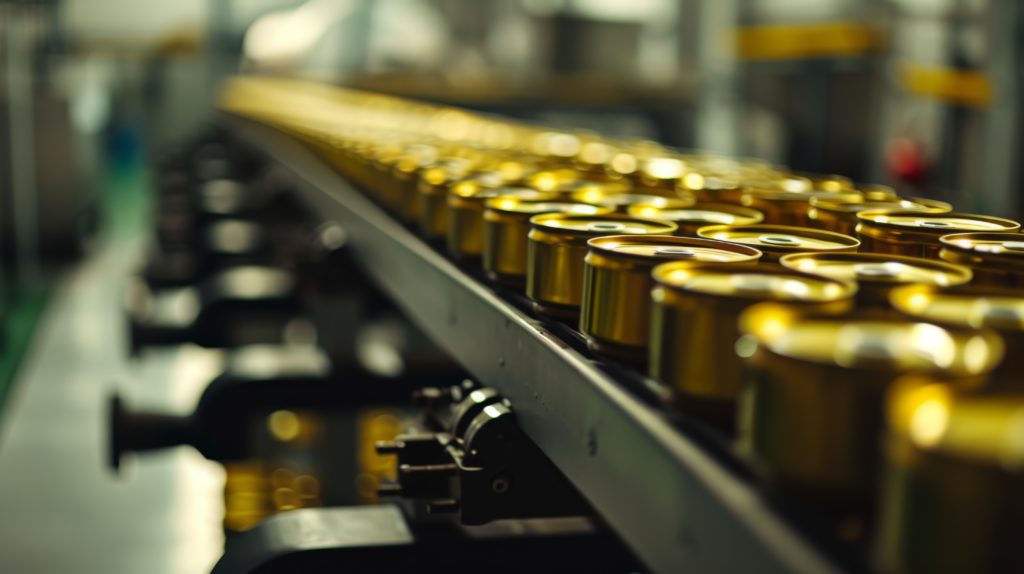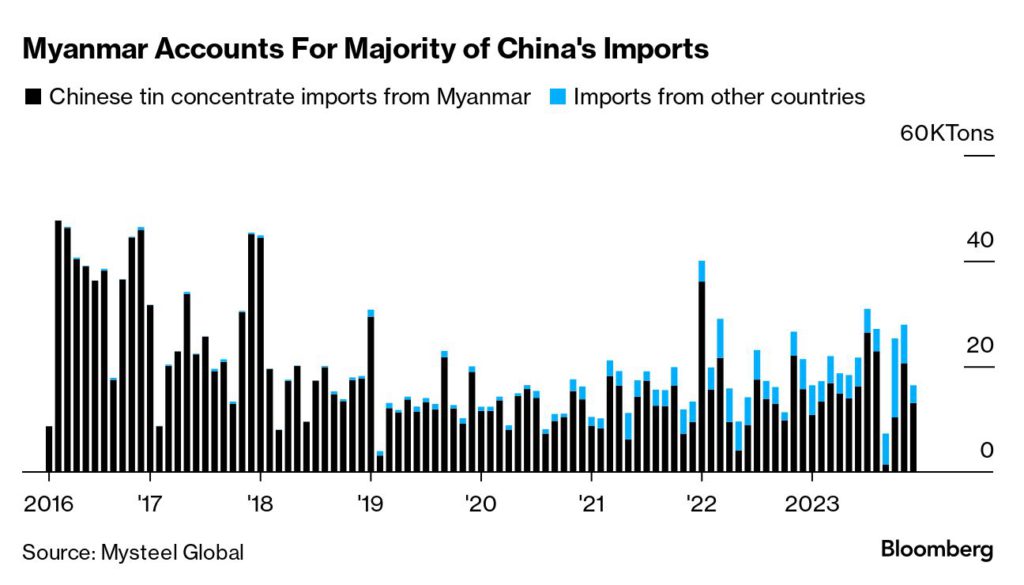China’s tin supply for food cans and chips steadily tightens

China’s supply of tin — used in everything from packaging to circuit boards — has been dealt another blow after a key mining region in neighboring Myanmar raised export taxes.
Wa state, an autonomous area in Myanmar controlled by an armed ethnic group, has placed a tax in kind of 30% on all tin concentrate exports from Feb. 7, according to a notice from its economic planning committee viewed by Bloomberg. Previously, only better quality concentrate was subject to the tax, while poorer grades were charged less onerous cash duties, researcher Mysteel Global said.
Myanmar is the world’s third largest producer of tin ore, and the expanded levies mean industries including food processing and semiconductors will face higher costs. Areas controlled by the United State Wa Army accounted for around a third of China’s supply of the metal in 2022, according to the International Tin Association.

It’s the latest in a series of restrictions to affect tin, the only one of six major metals on the London Metal Exchange to have risen this year. Indonesia, which vies with China as the world’s biggest miner of tin, has already banned ore exports as part of the government’s campaign to develop processing at home. Mining protests in Peru last year also curbed availability.
Resource nationalism and concerns over environmental degradation are increasingly imposing constraints on the flow of metals across the world. The United Wa State Army halted tin mining last year to conserve deposits and reduce pollution and accidents, leaving the processors that turn ore into concentrate to run down their stockpiles.
Then there are Beijing’s own efforts to shut down cyber-scam operations on its border, which have threatened to delay the resumption of mining in Myanmar.
As inventories in the country deplete, exports to China could see a bigger drop starting next month, said Mysteel analyst Ding Wenqiang. And while global supplies of the refined metal remain ample, stockpiles monitored by the LME began dropping in December.
LME tin has risen over 3% this year and the new tariff regime in Myanmar is supporting prices, Shanghai Metals Market said in a note.
{{ commodity.name }}
{{ post.title }}
{{ post.date }}




Comments